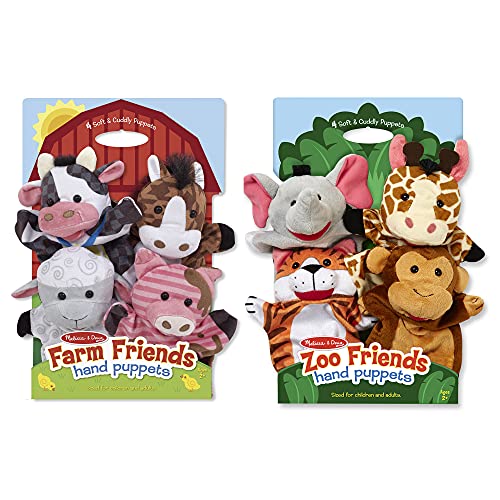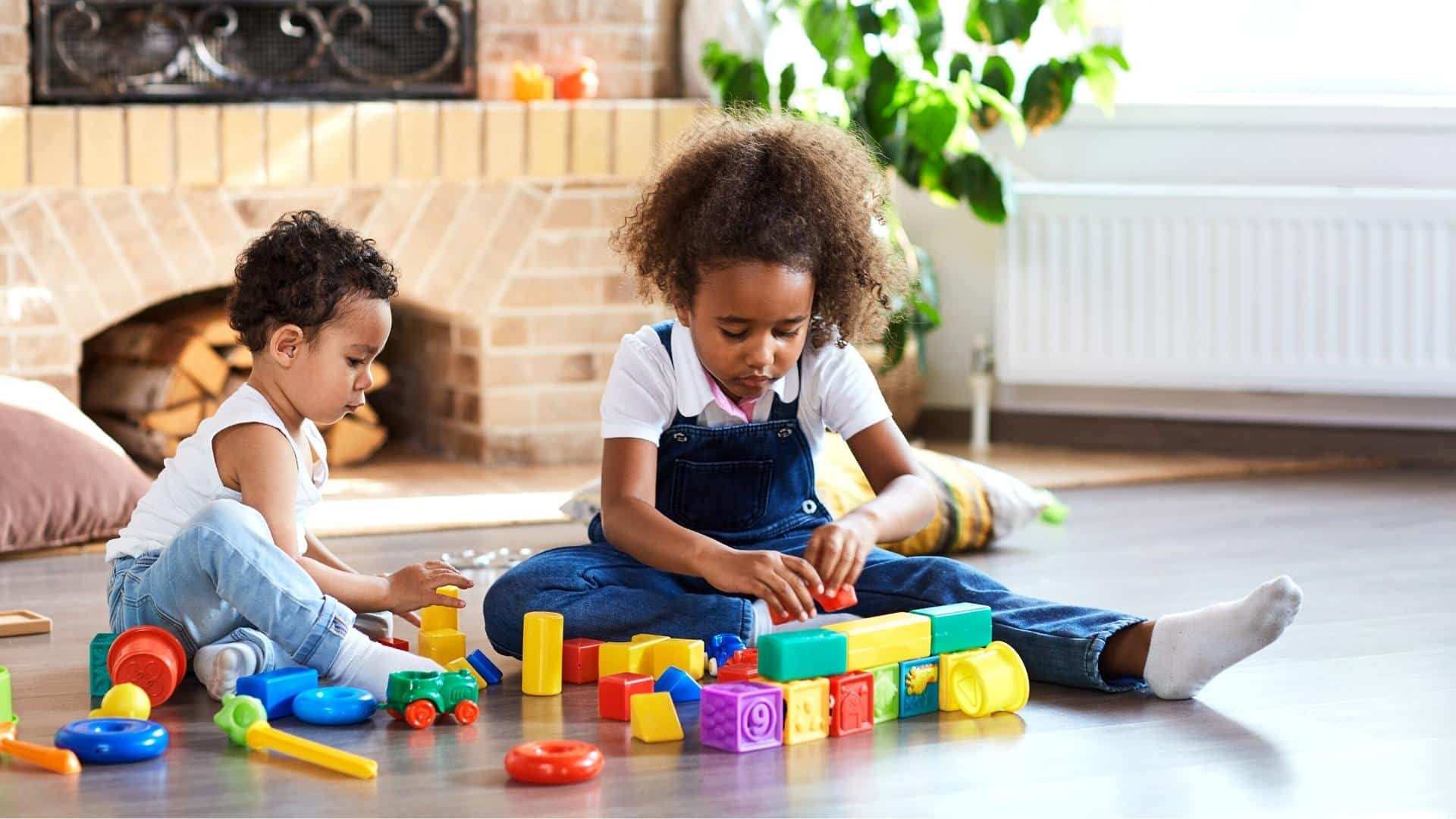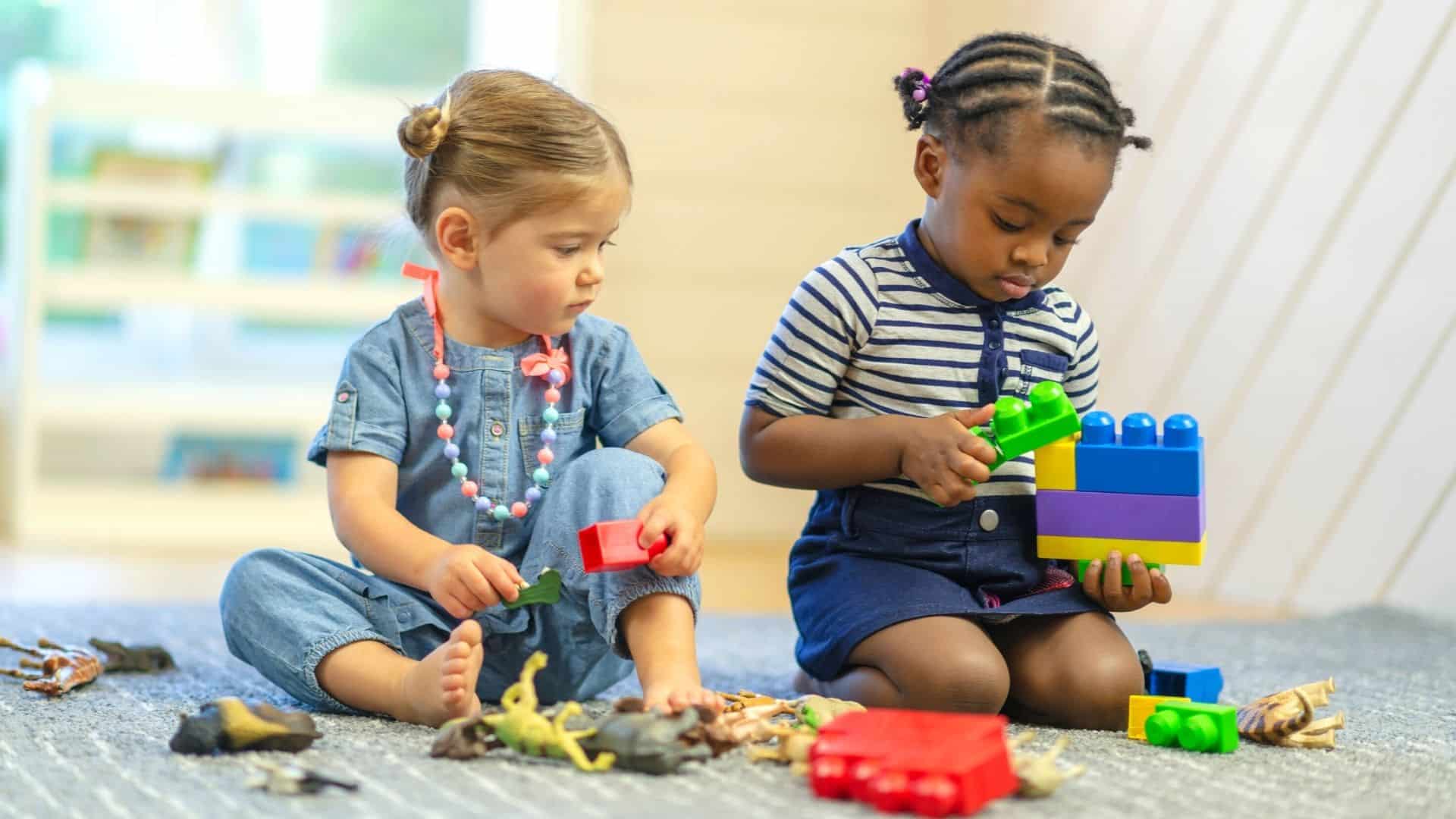Activities to promote sharing and turn-taking are crucial for children’s social development and building relationships. Teaching these skills can be challenging, but we’ve compiled a list of effective ways to help your child practice sharing and turn-taking in various situations.
From sharing toys and snacks to taking turns in conversations, these activities will equip your child with the necessary skills for a lifetime of successful social interactions.
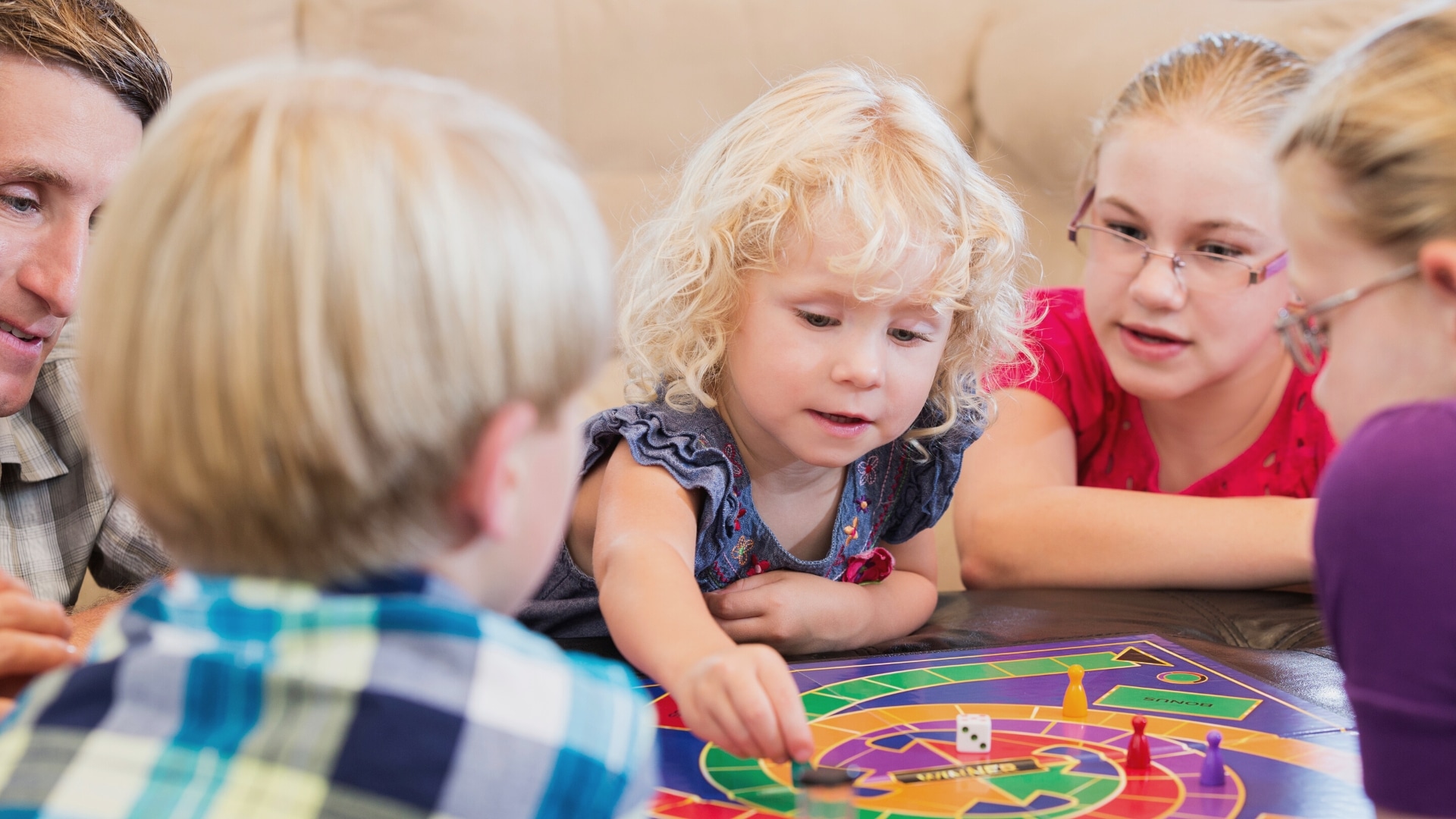
Table of Contents
Key Takeaways
- The post provides 10 effective games and activities to promote sharing and turn-taking, as well as strategies to teach these skills, such as reading books and modeling behavior.
- Learning to share and take turns helps children develop patience, listening, empathy, and waiting skills, which are essential for successful social interactions and building relationships.
- The importance of positive reinforcement, modeling behavior, and using effective communication cannot be underestimated when helping children learn and practice sharing and turn-taking skills.
10 Amazing Activities To Promote Sharing And Turn-Taking
Here are my top activities and games your children can play to promote sharing and turn-taking.
1. Puppet Play
Puppets are a great way to teach young children about sharing and other social-emotional skills, especially when used for role play.
Use puppets to act out scenarios where characters take turns, share toys or snacks, and are kind to each other.
When children see two puppets sharing a toy, they will begin to learn what sharing means, how sharing happens, and why sharing is important.
As a bonus, puppet shows can also help young children to understand and express their emotions.
With 2 sets of 4 adorable animal puppets and endless role-playing possibilities, these puppets will help your child learn about sharing, taking turns in conversations, and understanding and expressing emotions in a fun and creative way!
2. Musical Imitation Game
The Musical Imitation Game is a fun and easy way to teach turn-taking and it is one of my favorite games.
To complete this activity, you will need a musical instrument or a simple percussion instrument (like a tambourine or a set of maracas).
Start by playing a short, simple rhythm, and then pass the instrument to your child. Encourage your little one to imitate your rhythm and then add their own.
Keep passing the instrument back and forth, taking turns, and building a musical conversation.
All children should have a set of musical instruments to experiment with. As you know I am a huge fan of wooden toys and so this set ticks all the right boxes for me. It will have longevity and is safe for little ones to chew should they feel the need.
3. Sharing Ball
The Sharing Ball Game is very popular in daycare centers and preschools as it is an ideal way to teach young children how to share and take turns in a fun way.
To play this game, you will need a soft ball or a stuffed animal. Next, sit in a circle with your children and pass the ball around while saying “your turn” or “my turn.”
This activity provides a perfect opportunity to encourage children to share the ball with others and wait patiently for their turn.
4. Build A Tower Together
By age 3, children can build a tower up to 10 blocks high. Promote their turn-taking skills by encouraging your toddler to build a tower with you or another child.
All you need is a set of blocks and a hard, level surface.
Take turns to place a block onto the ever-growing stack to make the tower as tall as possible.
No nursery is complete without wooden blocks. They provide hours of fun and education through play from honing fine motor skills, improving problem-solving, developing creativity and teaching colours and shapes. My favourite is this colourful set from Melissa and Doug.
NOTE: If two or more children are playing, you will need to supervise and encourage them from the sidelines. Try not to involve yourself unless it is necessary.
5. Pom Pom Turn Taking Game
The Pom Pom Turn-Taking Game is another cheap, simple, and fun turn-taking activity.
All you will need is a set of pom poms and a container.
Start by placing the pom poms in the container and get your child to take turns with you, removing one pom pom at a time.
Encourage your child to wait patiently for their turn and to share the pom poms with you at the end of the game.
This activity is also brilliant for developing your child’s language skills as they can count the pom poms and name the colors as they pick them out.
6. Bubble-Blowing
Bubble-blowing is a wonderfully simple sharing and turn-taking activity.
I love playing this game for children of all ages, as it never fails to make children smile.
Start by getting a bottle of non-spill bubbles and heading outside. Get your children to take turns blowing bubbles for the other child to pop.
Encourage your toddler to share the bottle of bubbles with their friend, so they can take turns blowing or popping.
Fubbles Bubbles has taken bubble play to a whole new level. With its ingenious non-spill design, this toy is perfect for young children to create bubbles all day without getting covered in bubble solution! Win-Win!
7. Cooking and Baking
Not only is cooking a valuable life skill for your little one to learn, but understanding how to follow a recipe and how to take turns to complete the steps makes for a wonderful activity.
Inspire your toddler to choose a recipe they’d like to cook (mini pizzas, flapjacks, or banana muffins are always good options!) and work together to collect all the ingredients.
Take turns measuring out the ingredients and share the responsibility of mixing, pouring, and creating your treats.
Not only are you helping to refine your child’s turn-taking skills, sharing skills, fine motor skills, and language skills… But you both get to enjoy a yummy treat at the end of the activity!
For some great recipe ideas for toddlers, I love the Little Helpers Toddler Cookbook. If you want to get your little one interested in cooking then give this little gem a try.
Full of fun and easy recipes, your toddler will be super keen to join you in the kitchen to prepare their next snack or to help with dinner!
Yes... you will need to help and guide them, but this great book provides the perfect starting point to introduce your toddler to the amazing world of cooking and all the life skills that it brings.
8. Shape Sorting
Ideal for younger toddlers, shape sorting will encourage your child to refine their fine motor skills, language skills, and sharing skills.
Start with a shape sorting cube, like this one, and between yourself and your child, take turns to describe the piece’s shape and color before placing it through the corresponding hole.
As a bonus, you can encourage your little one to separate the shapes into two piles before the activity. One for you and one for them.
9. Board Games
Board games of any kind are brilliant activities to promote sharing and turn-taking. My top board games for younger toddlers include Chutes and Ladders, Snap, Monkeying Around, and Sunny and Stormy Day.
For older children, you can play simple games such as The Gruffalo Deep Dark Wood, Jenga, and Bluey’s Scavenger Hunt.
Playing board games with your children will allow them to witness you sharing and taking turns… Making it far more likely for your children to repeat these sharing and turn-taking behaviors.
TOP TIP: The more a board game emphasizes the ability to take turns and share pieces of the game, the better!
10. Reading Books
I am a huge fan of reading books to children. And in this case, I am also a huge fan of children reading books to us!
To help promote sharing and turn-taking skills, encourage your child to choose a book they’d like to read. Then sit down in a comfy spot and take turns reading one line or page at a time.
Pass the book between yourselves as you read to help develop sharing skills.
To save you the hassle of finding the best books for your children, I’ve done all the research work for you. Here are my top picks:
- The Best Books For Your 1-Year-Old!
- The Greatest Books For Toddlers!
- The Best Books For 3-Year-Olds!
- The Best Books For 5-Year-Olds!
REMEMBER: Young toddlers have short attention spans so they will not be able to wait too long for their turn. Older children will be able to wait longer so adjust your waiting times accordingly to ensure every child has a positive experience.
The Importance of Sharing and Turn-Taking
The concepts of sharing and turn-taking are vital social skills that young children need to learn to interact with others effectively.
These life skills will help children develop friendships and teach them how to manage their emotions and how to see other people’s points of view.
By learning to share and take turns, children develop patience, listening, empathy, and waiting skills, which are essential for social interactions.
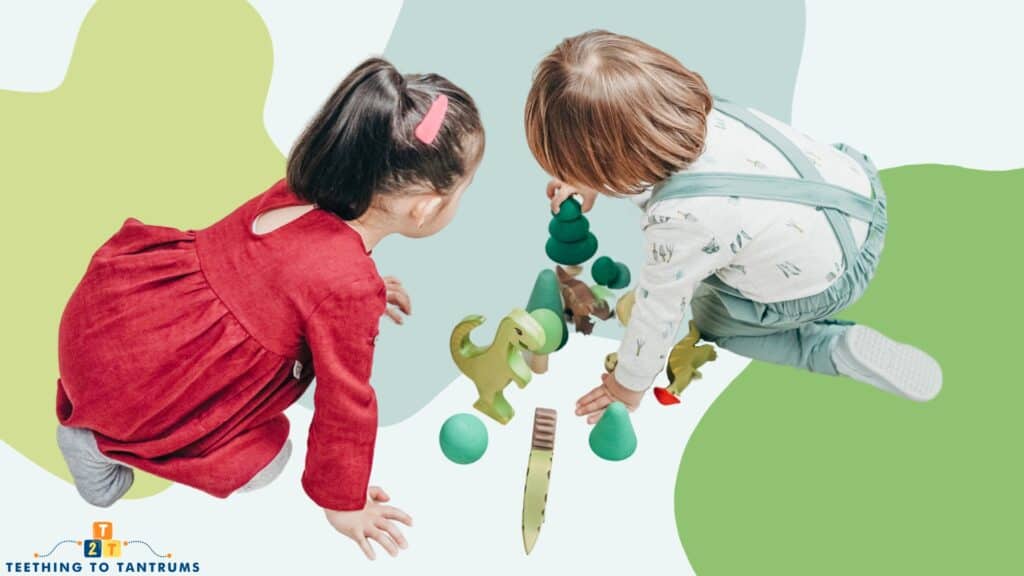
How To Teach Sharing And Turn-Taking
Contrary to popular belief… Children are not developmentally able to understand how sharing works and why it is important until they are 3 years old.
However, this does not mean that you cannot help your child learn this vital skill throughout their toddler years as there will be situations in which your toddler will need to cooperate with others.
Alongside the activities to promote sharing and turn-taking I listed above, you can also provide the following opportunities for children:
- Read books about sharing. As I mentioned earlier, I am a great fan of books. Especially when introducing young children to new social situations and helping with emotional development. This book in the Llama series is perfect for helping to teach your little one to share. Just remember to pause at key points to discuss how the characters are sharing or taking turns.
- Use a timer to help children understand when it’s time to take turns. Patience is a difficult concept for our children to understand. Help them visualize their waiting by using a toddler-friendly clock. Big, bold numbers and colors will help your child know when to wait and when it’s their turn.
- Praise children when they share or take turns, and encourage them to keep practicing. Practice makes perfect and positive reinforcement is the best parenting trick in the book to help our children learn a new skill. Never underestimate the power of your support when teaching sharing and turn-taking skills.
- Model sharing and turn-taking yourself. As well as using positive reinforcement with your children, ensure they witness you sharing and waiting your turn patiently. Child development is as much about witnessing as it is about practicing. Children are far more likely to pick up new skills if they witness their caregivers doing them too.
- Teach your children the correct language to use. Effective communication is essential during activities for promoting sharing and turn-taking. So teach toddlers to use phrases such as “Can I have a turn, please?” or “When you’re done, can I play with that?” to communicate their intentions. And help children understand that sharing and turn-taking are a two-way street, where everyone benefits when everyone takes turns.
Be sure to watch my video about Toddler Sharing if you’re little one is really struggling with snatching and sharing tantrums.
My 4-Step Turn-Taking Strategy
Over the 40 years of being a Norland Nanny, I have developed a 4 step turn-taking strategy to help children learn how to take turns effectively:
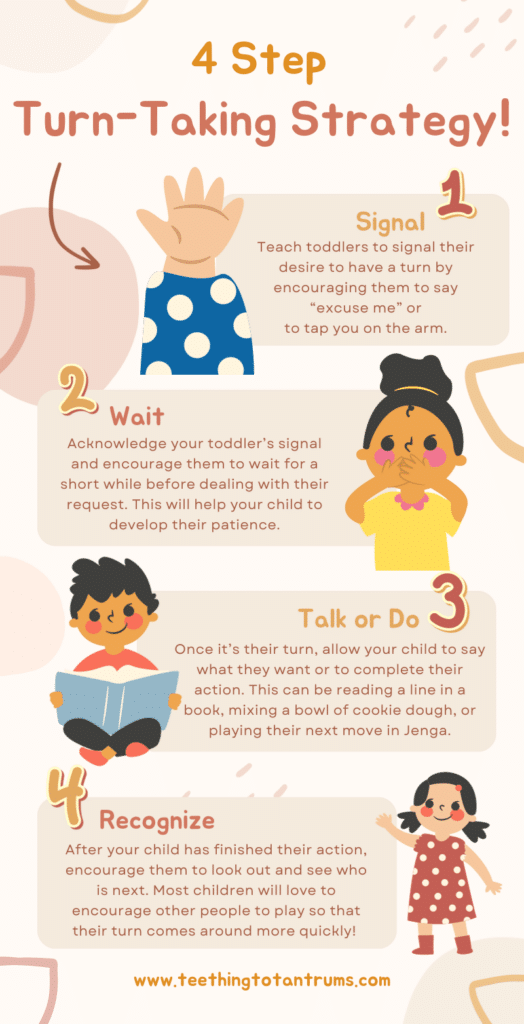
- Signal. Give your toddler the communication skills to signal their desire to have a turn by saying “excuse me” or tapping you on the arm.
- Wait. Acknowledge your toddler’s request and encourage your toddler to wait for a short while before dealing with their request. This will help your child to develop their patience and understand they cannot do everything they want immediately.
- Talk or Do. Once it’s their turn, allow your child to say what they want or to complete their action. This can be reading a line in a book, mixing a bowl of cookie dough, or playing their next move in Jenga.
- Recognize. After your child has finished their action, encourage them to look out and see who is next. Most children will love to encourage other people to play so that their turn comes around more quickly!
Looking to get your little one to sleep quickly and effortlessly through a healthy nighttime routine? Check out my Bedtime and Nap Cheat Sheet and master the art of making daytime naps and bedtimes as seamless as possible.
A bedtime & nap cheat sheet so good your little one will ask you to put them to bed...
Laura Williams "This is a life saver! I'm so glad I downloaded your bedtime & nap cheat sheet. My little one actually asked me to put him to bed last night! Unbelievable! Thank you so much!"
Click Here For The FREE Cheat Sheet
Frequently Asked Questions About Activities To Promote Sharing And Turn-Taking
Looking for more information about activities to promote sharing and turn-taking? Here are the most commonly asked questions, answered just for you.
Q: What are some turn-taking games for young children?
A: Turn-taking games are a great way to teach young children how to wait patiently and share with others. Some examples of fun games for young children to take turns doing include board games such as Chutes and Ladders, card games like Snap, Go Fish or Old Maid, and physical games like Duck, Duck, Goose, or Simon Says.
Q: What is the difference between sharing and turn-taking?
A: Sharing means giving something to someone else, either for a short time or permanently. Turn-taking means waiting for your turn to use something or speak.
Q: How can you encourage turn-taking in toddlers?
A: Encouraging turn-taking in toddlers can be done through simple activities such as passing a ball back and forth, taking turns stacking blocks, or even sharing a snack. It’s important to model turn-taking behavior and provide positive reinforcement when your toddler successfully takes turns with others.
Q: What are some activities that promote sharing?
A: Some examples of activities that promote sharing include playing with toys together, taking turns using the same item, or sharing a snack or drink.
Need More Parenting Help?
- Download our FREE Bedtime & Nap Sleep Cheat Sheet. It’s a free, easy-to-use and proven formula designed for parents of 0-5 year olds to master the art of consistently undisturbed and restful sleep without the yelling, nagging or exhausting long-winded evenings.
- Check out our Parenting Toolbox. You’ll get access to expertly-chosen products that you can guarantee are the best for your little one and your wallet.
- Are you looking for personalized guidance to navigate the challenges of parenting? I offer 1-on-1 consultations to bring you tailored strategies and actionable advice to help support your child's growth and well-being with confidence.

A bedtime & nap cheat sheet so good your little one will ask you to put them to bed...
Laura Williams "This is a life saver! I'm so glad I downloaded your bedtime & nap cheat sheet. My little one actually asked me to put him to bed last night! Unbelievable! Thank you so much!"
Click Here For The FREE Cheat Sheet
